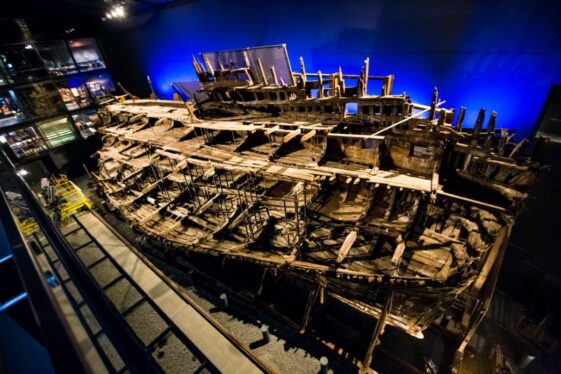Henry VIII’s favorite warship, the Mary Rose, sank in battle in 1545. Archaeologists successfully raised the ship in 1982, along with thousands of articles and the remains of 179 crew members—all remarkably well preserved thanks to the anaerobic conditions of the shipwreck created by the layers of soft sediment that accumulated over the wreckage.
A new analysis of some of the recovered bones reveals that whether someone is right- or left-handed could affect how their collarbone chemistry changes as they age, according to a new paper published in the journal PLoS ONE. This has implications for our understanding not just of aging, but of bone conditions like fracture risk and osteoarthritis.
As previously reported, the earliest-known reference to the Mary Rose appears in a January 29, 1510, letter ordering the construction of two new ships for the young king: the Mary Rose and her sister ship, dubbed the Peter Pomegranate. Once the newly built ship had launched, Henry VIII wasted no time defying his advisers and declaring war on France in 1512. The Mary Rose served the monarch well through that conflict, as well as during a second war with the French that ran roughly from 1522 through 1525, after which it underwent a substantial overhaul.



